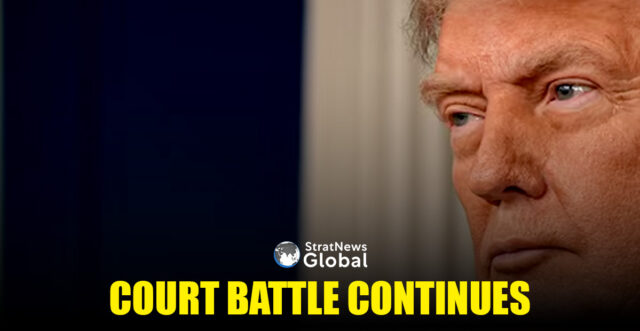A federal judge on Friday may deliver another setback to President Donald Trump’s efforts to restrict birthright citizenship, despite a recent Supreme Court ruling that made it harder for lower courts to halt White House directives.
A group of Democratic attorneys general from 18 states and the District of Columbia will urge U.S. District Judge Leo Sorokin at a hearing in Boston at 10 a.m. ET Friday to maintain an injunction he imposed in February that blocked Trump’s executive order nationwide.
The order directs U.S. agencies to refuse to recognise the citizenship of children born in the United States after February 19 if neither their mother nor father is a U.S. citizen or lawful permanent resident.
The states’ case is back in Sorokin’s courtroom so he can assess the impact of the Supreme Court’s landmark June 27th decision. In that 6-3 ruling authored by conservative Justice Amy Coney Barrett, the court directed lower court judges like Sorokin who had blocked Trump’s policy to reconsider the scope of their orders.
Rather than address the legality of Trump’s executive order, the justices used the case to discourage nationwide, or “universal,” injunctions — in which a single district court judge can block enforcement of a federal policy across the country.
Complete Relief
But the court raised the possibility that universal injunctions are still permissible in certain circumstances, including class actions, in which similarly situated people sue as a group, or if they are the only way to provide “complete relief” to litigants in a particular lawsuit.
Friday’s hearing will shed light on how lower courts plan to address what providing complete relief entails, said George Washington University law professor Paul Schiff Berman.
“One of the questions the Supreme Court left open in its nationwide injunction decision is whether states can assert claims on behalf of their citizens and, if so, whether a large-scale injunction would then be necessary to vindicate the rights of large numbers of citizens from large numbers of states,” Berman said.
Spokespersons for the White House and the attorneys general did not immediately respond to a request for comment.
A ruling from Sorokin, an appointee of Democratic President Barack Obama, in favour of the states would be the second blow to Trump’s executive order this month.
On July 10, at a hearing in New Hampshire, U.S. District Judge Joseph Laplante, an appointee of Republican President George W. Bush, issued a nationwide injunction blocking Trump’s order after he found that children whose citizenship status would be threatened by it could pursue their lawsuit as a class action.
The Democratic-led states, backed by immigrant rights groups, argue the White House directive violated a right enshrined in the U.S. Constitution’s 14th Amendment that guarantees that virtually anyone born in the United States is a citizen.
They have argued that, if the executive order is allowed to take effect, it would wreak havoc on the administration of federal benefits programs like Medicaid and the Supplemental Nutrition Assistance Program by making it difficult to verify eligibility.
They also argue that, because children often move across state lines or are born outside their parents’ state of residence, a “patchwork” of injunctions would be unworkable.
“Families are likely to be confused if federal benefits eligibility — let alone U.S. citizenship — differs by State,” the states wrote in a July 15 court filing.
They have urged Sorokin to double down on his February injunction, saying in the court filing that the Supreme Court decision has no bearing on the case before him.
“This Court correctly remedied the States’ injuries via a nationwide injunction, based on the same complete-relief principle that the Supreme Court recently recognised and endorsed,” the brief argued.
The Justice Department has countered that Sorokin’s injunction from February was “clearly overbroad and inappropriate.”
In a July 8 court filing, the department argued that individuals are best situated to litigate their own citizenship status.
(With inputs from Reuters)





